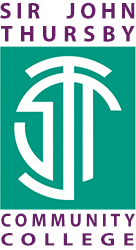Topic 2 Year 9 English
| English | |||
| Topic | Contemporary Giants - Part 3 | ||
| No of lessons | 13 | ||
| When is it happening | Half Term 1 Year 9 | ||
| What will students learn | Students will continue to develop their knowledge and understanding of contemporary fiction by exploring a carefully curated selection of extracts from the works of modern seminal authors. This selection will be different to the selection studied during the Year 7 and Year 8 Contemporary Giants units. Students will augment their learning by re-reading key extracts from the Year 7 and Year 8 Contemporary Giants units. Students will pair this exploration by moving on to learning about one award-winning author through a study of a whole novel from the author’s canon of work. Students will also develop their skills in narrative essay writing and expository essay writing by increasing their independence. | ||
| Key Knowledge that students should know at the end of 'Topic' | This is the knowledge that students will meet for the first time in this topic | Extracts and biographical information from seminal authors including Anthony Horowitz, Terry Pratchett William Golding, Margaret Atwood, George Orwell; comparison of Pratchett’s and Horowitz’s young adult and adult work; biographical information of a chosen award-winning author; audience, grammar and setting in a novel written by the chosen award-winning author. | |
| This is knowledge that students may have met before but will need to deepen their understanding |
Regular retrieval of the knowledge described above will be retrieved as well as: Terry Pratchett Anthony Horowitz Neil Gaiman |
||
| Key Skills that students should be able to demonstrate at the end of 'Topic' | This is the skills that students will meet for the first time in this topic | Students will focus on acquiring the following skills: Write like a short story writer | |
| This is skills that students may have met before but will need to develop | Making inferences; referring to evidence; purpose; vocabulary choice; characterisation; expressing own ideas; clear inferences; judicious evidence; audience; figurative language and grammar; setting; comparing; short speeches and keeping to the point; dev | ||
| Key vocabulary that students should know and understand |
Todorov, Pratchett, Horowitz |
||
| The Big Question | Why is it important to study adult fiction? | ||
|
Key questions that students should be able to answer at the end of the 'Topic' |
What is contemporary fiction? | ||
| Who is Patrick Ness and what does his adult fiction look like? | |||
| Who is teacher's choice of author and what does their young adult fiction look like? | |||
| Do writer's always write for the same audience? | |||
| Who is the author of our class novel? | |||
| What is the context of our class novel? | |||
| What happens at the start of our class novel? | |||
| What happens in the middle of our class novel? | |||
| What happens at the end of our class novel? | |||
